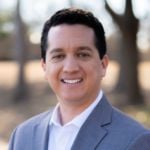
In the sixteenth century, St. Ignatius of Loyola founded the Society of Jesus, or the Jesuits. Supporters and critics alike have called them “God’s Marines” in recognition of their founder’s military background and their willingness to be deployed around the world in service of the Church. The Jesuits’ founding document is even addressed to “Whoever desires to serve as a soldier of God beneath the banner of the cross in our Society.”
The imagery of a soldier resolutely marching into battle may also have given rise to this famous quote attributed to Ignatius (and sometimes to St. Augustine):
Pray as though everything depended on God;
act as though everything depended on you.
Some people think this quote is authentic because paragraph 2834 of the Catechism attributes it to Ignatius. But the Catechism is not inerrant like Scripture is; even in its sections that describe infallible dogmas, the magisterial gift of infallibility extends only to divinely revealed matters of faith and morals. It does not ensure that scientific or historical assertions contained in the Catechism, including citations for quotations that support those dogmas or doctrines, are without error.
In paragraph 2834, the Catechism cites Joseph Guibert’s nineteenth-century study of the Jesuits. But in a footnote on the page it cites, the editor of Guibert’s book (which was published after his death) says of the popular Ignatian quote, “In this precise formula, the thought is nowhere found in Ignatius’s writings nor in any contemporary documents; but nevertheless it does correspond to his ideas.”
The closest parallel is found in Pedro de Ribadeneira’s biography of Ignatius, which was written less than twenty years after the saint’s death. He writes:
In matters which he took up pertaining to the service of our Lord, he made use of all the human means to succeed in them, with a care and efficiency as great as if the success depended on these means; and he confided in God and depended on his providence as greatly as if all the other human means which he was using were of no effect.
The earliest citation of this quote I have found comes from an 1868 edition of the American Phrenological Journal, which attributes the following variant to St. Ignatius: “Pray as if everything depended on prayer; then work as if everything depended on work.”
But, one year earlier, an Evangelical journal cited John Wesley (the founder of Methodism) as saying, “Work and preach as if everything depended on you, but pray as if everything depended on God.” Other late-nineteenth-century and early-twentieth-century works call the maxim “an old saying” and don’t attribute it to anyone. This casts doubt on the idea that the quote has been known as a piece of the wisdom of St. Ignatius of Loyola since the sixteenth century.
In response, some people claim that this quote is a mistranslation of the authentic Ignatian saying, “Let your first rule of action be to trust in God as if success depended entirely on yourself and not on him: but use all your efforts as if God alone did everything, and yourself nothing.” (In other words, what St. Ignatius really said was, “Pray as though everything depended on you, and act as if everything depended on God.”)
Although this is closer in tone to other paradoxical elements in Ignatius’s writings, the earliest appearance of this saying is to be found in a collection of Ignatian wisdom that was written 150 years after his death (see the Scintillae Ignatianae). It is more likely to be authentic than the previous quote, but we are still far from certain that it actually comes from St. Ignatius of Loyola.
But, some might say, even if both these quotations are apocryphal, don’t they still teach a valuable lesson?
They can—if they are properly understood.
For example, telling someone to act as if everything depended on him can increase the temptation never to take any initiative and simply “leave things up to God.” In the seventeenth century, the Quietist heresy taught that mankind’s ultimate goal was to achieve “perfect quiet” and be so united to God in prayer that one did not have a single thought in the mind. These people literally prayed as if everything depended on God and did nothing else.
But saying we should work as if it only “depended on us” can reduce God’s role in our lives to a mere afterthought in prayer. According to biblical scholar J.P.M. Walsh:
The popular form of the maxim is also congenial to certain instincts in us: to focus on our own efforts, to act as if things are all up to us, to reduce God’s working in our lives to a prepositional phrase: “with God’s help.” I play my part, and God plays his. Sometimes the maxim is used in such a way that it is virtually interchangeable with the bromide, “God helps those who help themselves.”
Christians can’t separate prayer and work into watertight compartments that never overlap but happen only in successive order. Prayer is not the time to seek God’s help before we “get the job done ourselves.”
In his encyclical on human work, Pope St. John Paul II wrote, “Let the Christian who listens to the word of the living God, uniting work with prayer, know the place that his work has not only in earthly progress but also in the development of the kingdom of God, to which we are all called through the power of the Holy Spirit and through the word of the gospel” (Laborem Exercens, 27).
Everything we do, including prayer, is possible only because of God’s gracious assistance. St. Paul says, “The Spirit helps us in our weakness; for we do not know how to pray as we ought, but the Spirit himself intercedes for us with sighs too deep for words” (Rom. 8:26). In a letter he wrote to Francis Borgia in 1555, St. Ignatius provides a sound perspective on the relationship between human efforts and divine providence:
I consider it an error to trust and hope in any means or efforts in themselves alone; nor do I consider it a safe path to trust the whole matter to God our Lord without desiring to help myself by what he has given me; so that it seems to me in our Lord that I ought to make use of both parts, desiring in all things his greater praise and glory, and nothing else.
For more investigation of questionable saint quotes, see Trent’s book What the Saints Never Said, available from Catholic Answers Press.



